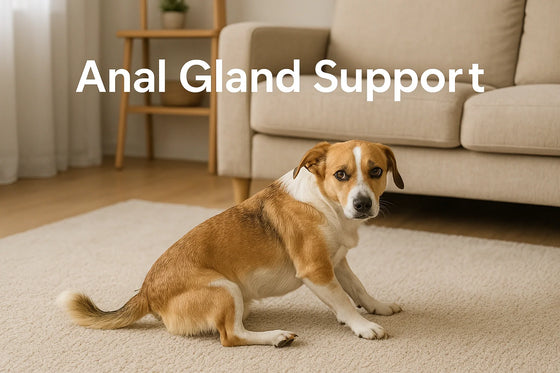Nutrition & Treat Guides
Whole-food nutrition, preservation, hydration, digestion, and ingredient-led feeding guidance.
Nutrition Foundations
Core feeding methods, ingredient basics, and how to think about whole-food nutrition.
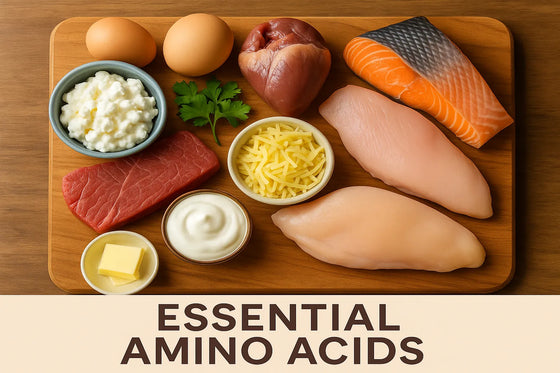
Essential Amino Acids for Dogs & Cats: Complete Guide to Taurine, Protein Quality & Natural Food Sources
Essential amino acids are the real engine behind “high-protein” diets for dogs and cats. This guide explains which am...
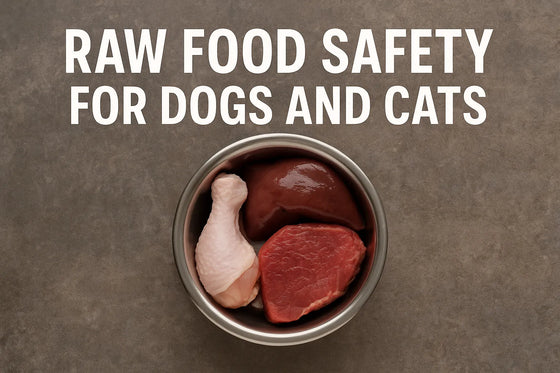
Can Dogs Eat Raw Food Safely? A Science-Backed Guide to Raw Diets for Pets
Raw feeding can feel exciting and overwhelming at the same time. This guide explains how dogs and cats digest raw foo...
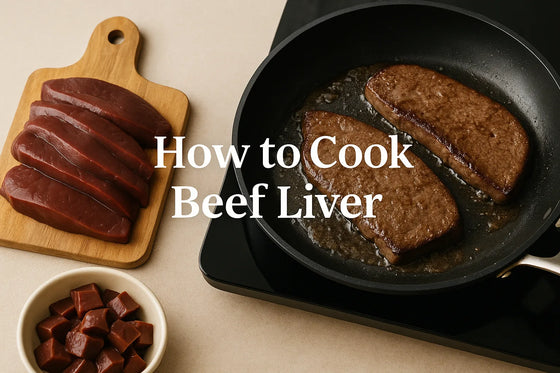
Raw vs Cooked vs Freeze-Dried Beef Liver for Dogs & Cats
Beef liver is a powerful whole-food boost for dogs and cats—but how you prepare it matters. This guide compares raw, ...
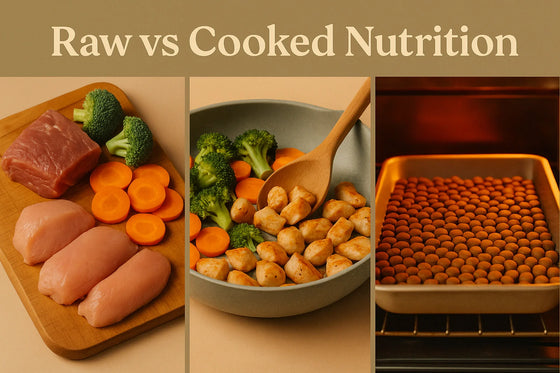
Raw vs Cooked Dog & Cat Food: A Complete Guide to Nutrient Retention & Real-World Feeding
Raw, cooked, freeze-dried or kibble — there is no single perfect diet for every dog or cat. This guide explains how d...
Preservation & Storage
Freeze-drying, oxygen control, glass protection, and how nutrient integrity is preserved.
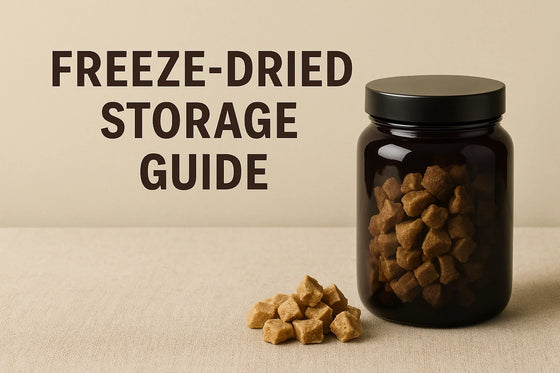
Maximizing Nutrient Retention in Freeze-Dried Dog & Cat Treats: Storage & Shelf Life Guide
Freeze-dried treats maintain their raw nutrient integrity only when protected from air, light, and humidity. This gui...
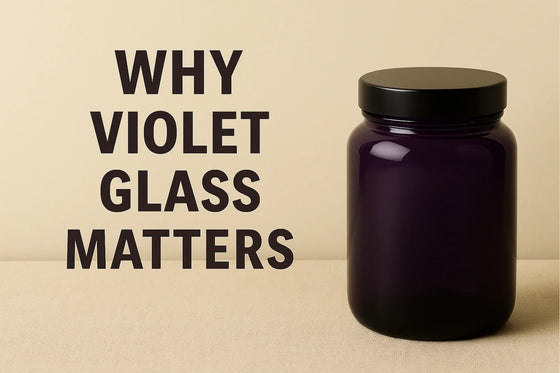
Why Violet Glass Protects Freeze-Dried Treats
Even the best freeze-dried ingredients lose value when stored in clear bags or pouches. Learn how violet glass protec...
Whole Foods vs Supplements
How to evaluate “supplement-style” products vs food-first nutrition — and why the difference matters.
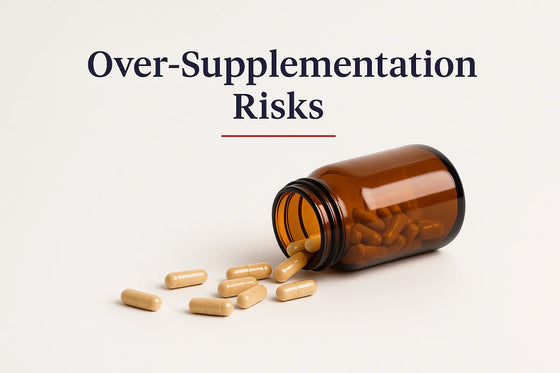
The Dangers of Over-Supplementation in Dogs & Cats
More supplements do not always mean better health. This guide explains the real risks of over-supplementation in dogs...
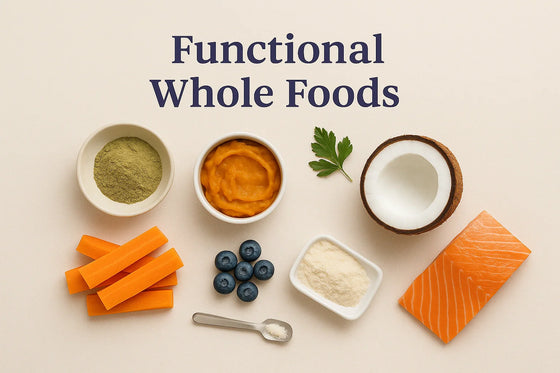
The Power of Functional Whole Foods: Liver, Egg, Eggshell, Seafood & More
Learn how targeted whole foods—from liver and egg to eggshell and seafood—can act as powerful, natural “functional su...
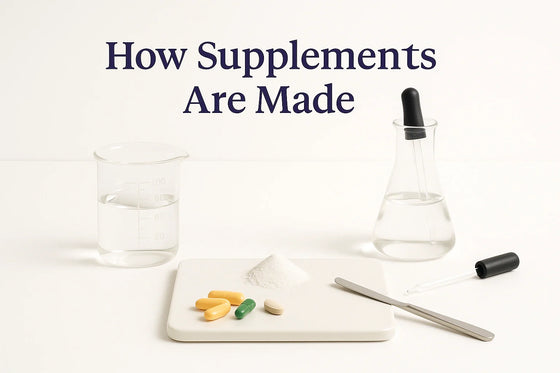
How Supplements Are Made: Isolates, Extracts, Chelates & Synthetics Explained
Go behind the label and discover how pet supplements are really made. This guide explains isolates, extracts, chelate...
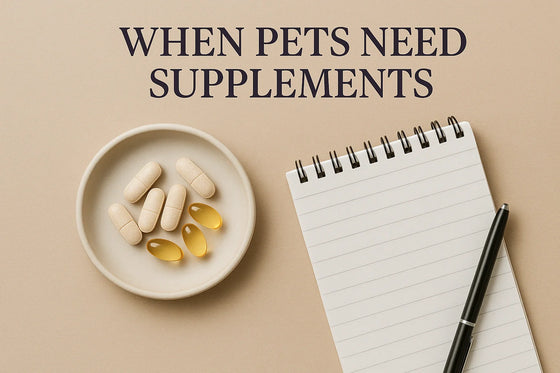
Understanding When Supplements Are Truly Necessary (Vet-Style Guide)
Not every dog or cat needs a shelf full of supplements. This guide walks you through a clear, vet-style framework for...
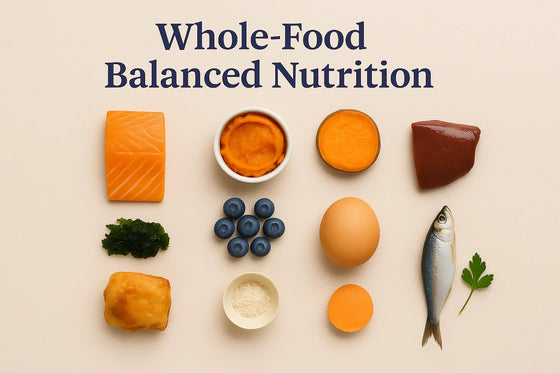
How Whole Foods Provide Complete & Balanced Nutrition Naturally
A clear, long-form guide to how whole foods can support complete and balanced nutrition for dogs and cats. Learn how ...
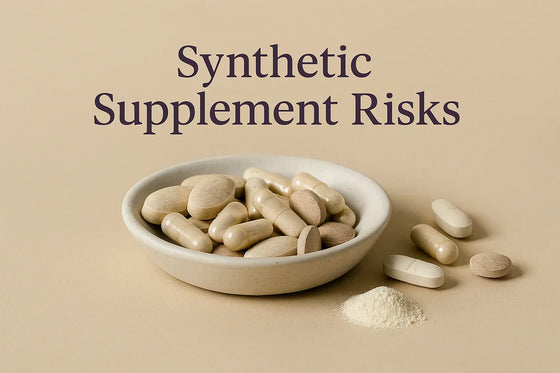
The Hidden Risks of Synthetic Supplements in Pet Nutrition
Synthetic supplements can support pets—but they also carry risks when used excessively or without awareness. Learn ab...
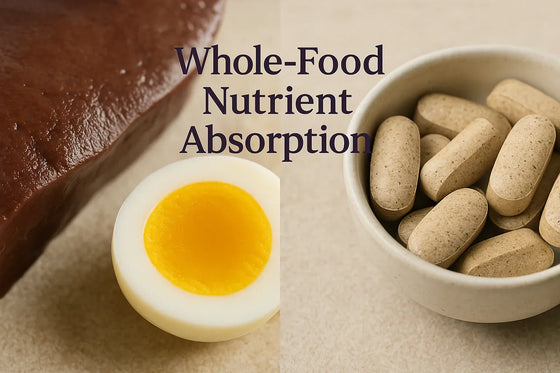
Whole-Food Nutrient Absorption vs Synthetic Supplements
A clear, science-backed breakdown of how dogs and cats absorb nutrients from whole foods versus synthetic supplements...
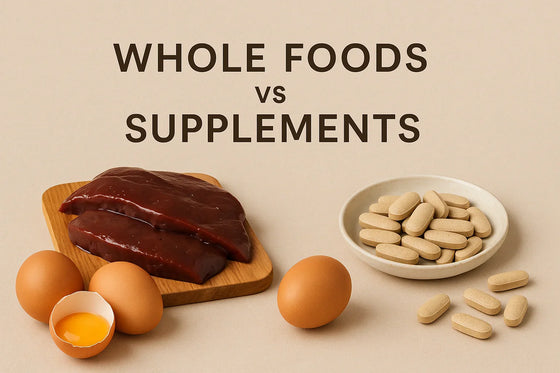
Whole Foods vs Supplements for Dogs & Cats: The Complete Science-Backed Guide
The definitive, science-backed comparison of whole foods vs supplements for dogs and cats. Learn when real food is en...
Hydration
Why hydration changes digestion, appetite, and comfort — especially for cats.
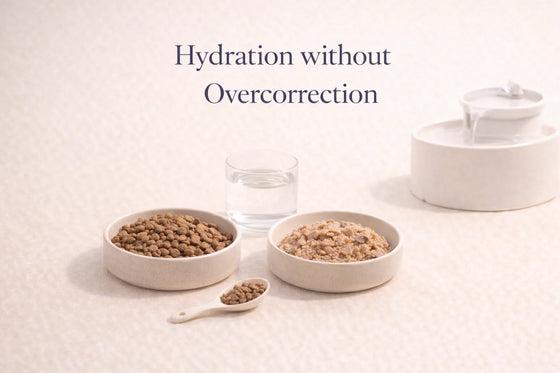
Hydration Without Overcorrection: Fresh Water, Clean Bowls & Thoughtful Feeding
Hydration isn’t about rigid rules or doing more—it’s about removing barriers. From clean bowls to fresh water and tho...

Mango’s Story: Hydration, Stress, and a Cat’s Second Chance
A personal story about hydration, stress, and feline urinary health—sharing the lessons that reshaped how we think ab...
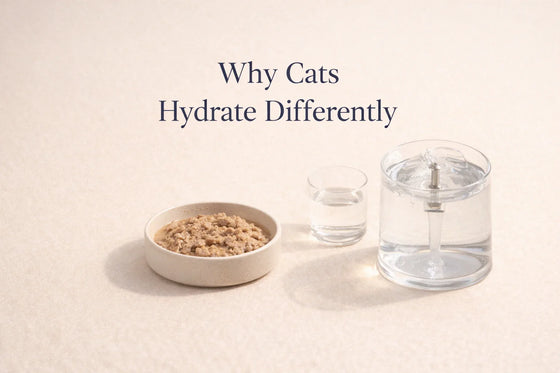
Why Hydration Matters More for Cats Than Most People Realize
Cats evolved to meet much of their hydration needs through food. This guide explains how biology, moisture intake, an...
Digestion & Stool
Gut comfort, stool quality, and how food structure (dry vs rehydrated) changes outcomes.

